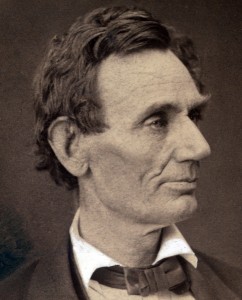When European newspapers discussed Abraham Lincoln’s victory in the Election of 1860, their reporters did not always provide the correct details. In January 1861 the (Montpelier) Vermont Patriot highlighted a mistake in an editorial from the Drogheda (Ireland) Argus, which discussed the implications of “a black Man’s” victory for the United States. “No Presidential election has excited so much party feelings as has the election of Abraham Lincoln, a black gentleman,” as the Argus noted. The paper also claimed that Lincoln had been “unknown out of [Illinois]” before the 1860 election. While he might have been “unknown as a public man in Europe,” Lincoln had emerged as a national political figure during the Lincoln Douglas debates in 1858. After returning home to New York in July 1858, Charles H. Ray described how those outside Illinois were interested in Lincoln and the campaign:
“In my journey here from Chicago, and even here [in Norwich, New York]– one of the most out-of-the-way, rural districts in the State, among a slow-going and conservative people, who are further from railroads than any man can be in Illinois — I have found hundreds of anxious enquirers burning to know all about the newly raised-up opponent of Douglas… In fact, you have sprung at once from the position of a “capital fellow” and a “leading lawyer” in Illinois, to the enjoyment of a national reputation. Your speeches are read with great avidity by all political men…”
You can read more about Lincoln and his political career in Edwin Erie Sparks’ The Lincoln-Douglas Debates of 1858 (1908), David Donald’s Lincoln (1995), and Allen C. Guelzo’s Lincoln and Douglas: The Debates That Defined America (2008).









Related Articles
No user responded in this post
Leave A Reply
Please Note: Comment moderation maybe active so there is no need to resubmit your comments